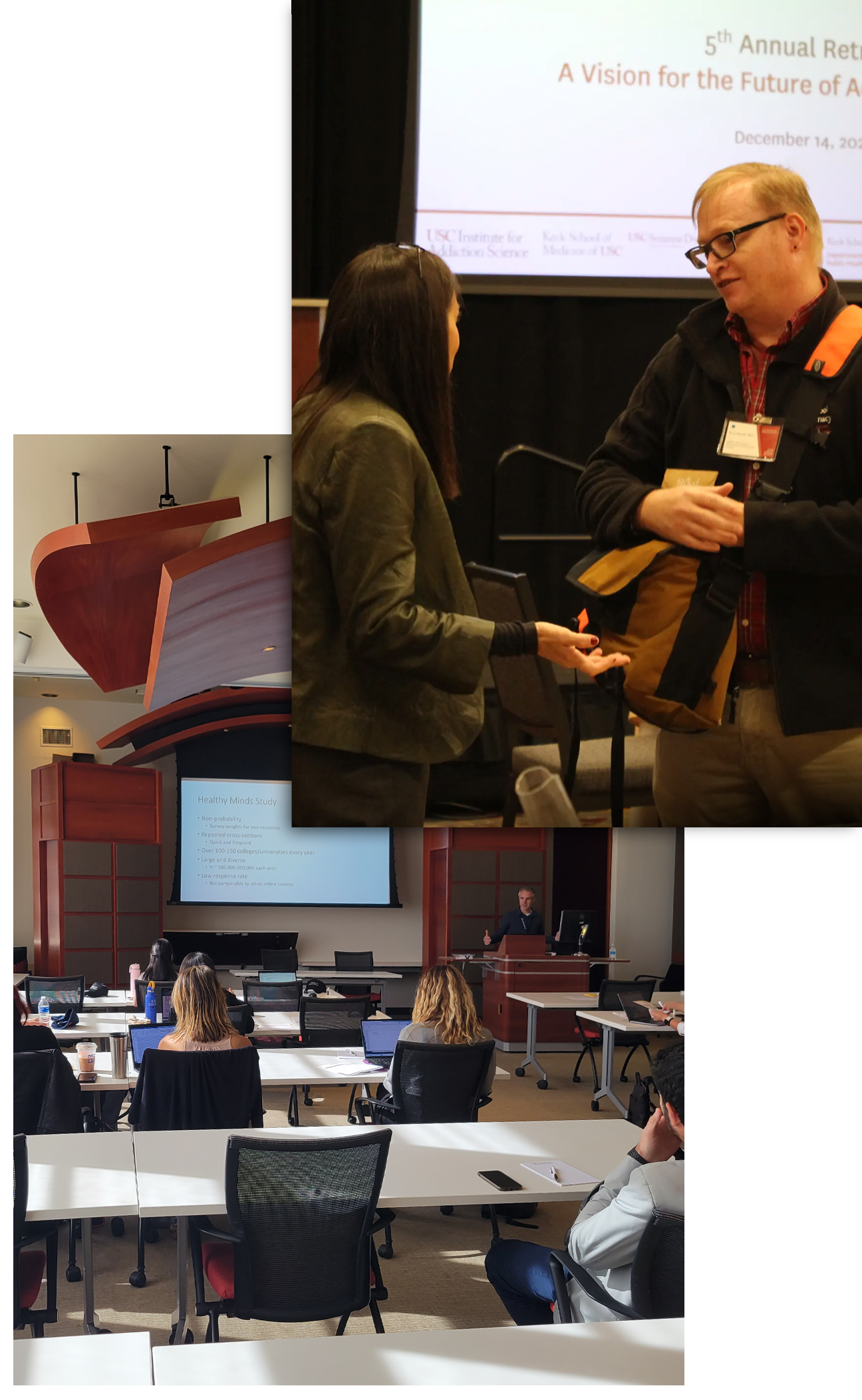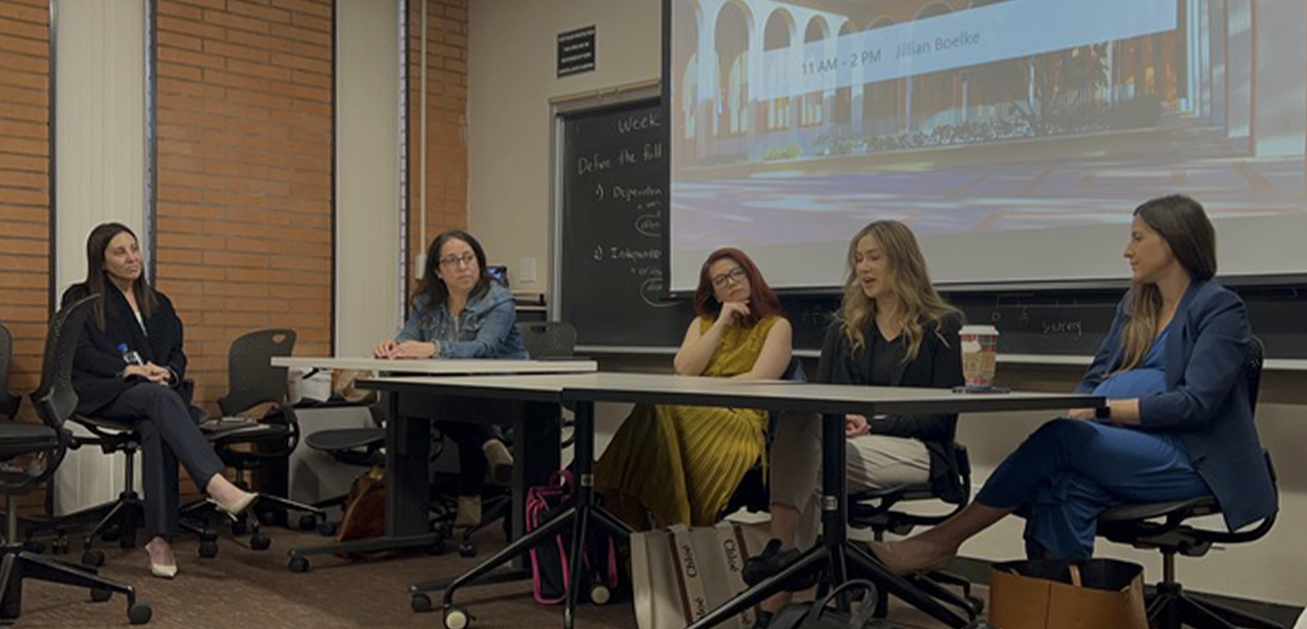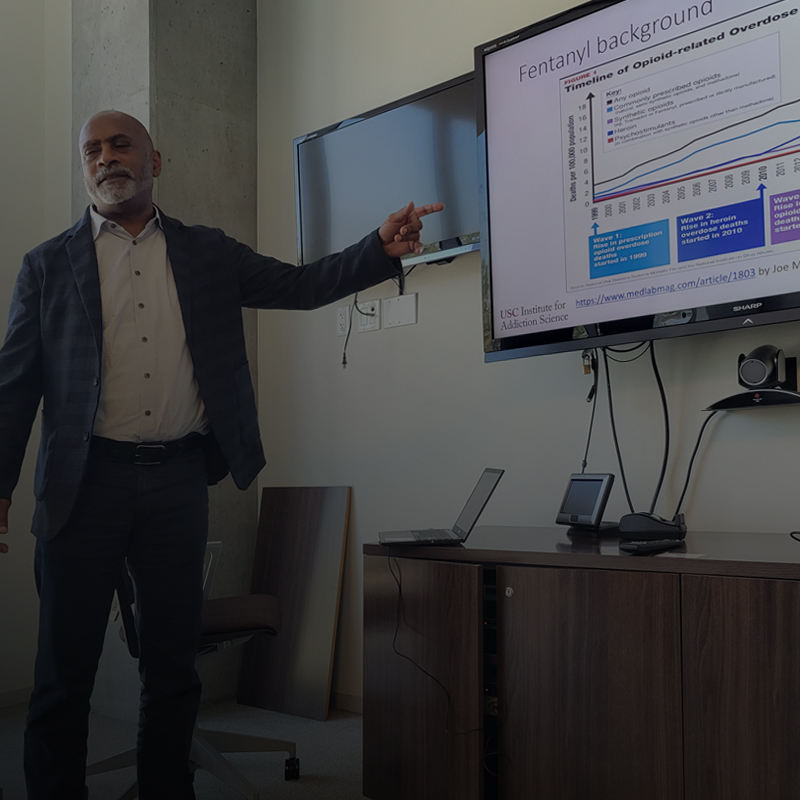What is Addiction Science?
When IAS began, a unified definition of addiction science was largely non-existent. Through a needs assessment and consultation with scientists, community members, and practitioners we converged on the following:
Addiction science is the transdisciplinary scientific study of the nature, causes, consequences, prevention, and treatment of all types of addiction-related phenomena. Addiction science bridges the gap within and across areas of science, practice, policy, and real-world contexts.
Transdisciplinary
Transdisciplinary. Breaks down discipline-specific silos by recognizing that all approaches have merit. The goal of addiction science is to leverage all the available theory and data across fields to maximize the scientific understanding of addiction.
Integrative. Combines anthropology, data science, human development and family science, medicine, neuroscience, nursing, public health, public policy, psychology, social work, sociology, statistics, and other professions into a transdisciplinary network to generate knowledge with greater depth and breadth.
Translational. Leverages basic knowledge about the causes of addiction to study the impact of interventions and policy while also using observations about how addiction manifests in the real-world to uncover the mechanistic basis of the root-causes of addiction.
Contextualized. Addiction science recognizes the importance of situating research within a health equity framework, appreciating the role social disadvantage plays in the disproportionate burden of disease.
Real-world. Includes insights of people with living experience and practitioners in addiction to better understand the addiction’s drivers and consequences to optimize solutions.


Multi Addiction
Addiction science spans the study of all addictive behaviors, substance and nonsubstance, acknowledging both the common and unique elements across different manifestations of the disease. The multi-addiction approach is capable of accelerating scientific advances in several ways.
By taking previous scientific evidence about how to successfully address one addictive behavior and readily applying it to address another addictive behavior, addiction scientists have a ‘head start’ which is critical for addressing urgent needs and rapidly unfolding trends or epidemics.
The multi-addiction approach is ideally suited to the reality that people suffering from addiction are often addiction to multiple substances or behaviors.
Broad Application
Addiction science takes a real-world approach, recognizing that addictive behaviors exist within a complex environment involving commercial-economic, political, cultural, and social forces. This approach acknowledges the numerous points of contact between an individual and the public health, social welfare, and healthcare systems, each of which can be leveraged to maximize the opportunity for addiction prevention and treatment.

Lifespan Perspective
Additionally, addiction science recognizes contexts that surround the various lifespan stages of the individual and the addiction process, beginning with first exposure to addictive agents in childhood and sometimes ending in premature death from addiction-related disease in adulthood.
Since its inception, the Institute has successfully mobilized and expanded membership to over 80 faculty from 10 different schools, colleges, and hospitals.

RESEARCH GROUPS AND COMMITTEES

PUBLICATIONS

NOTABLE FINDINGS

PILOT GRANT PROGRAM

RESEARCH FACILITIES

